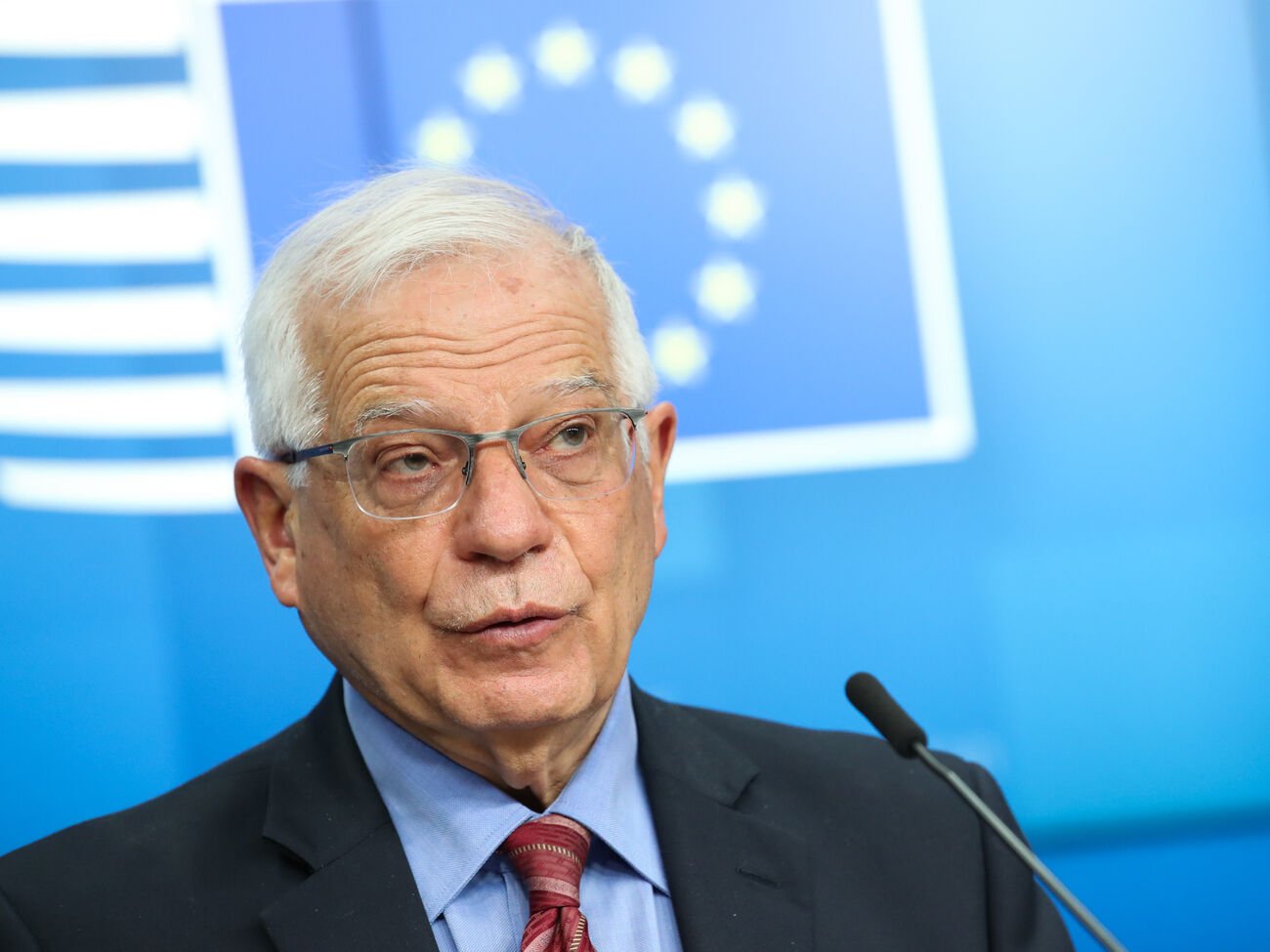
[ad_1]
The foreign ministers of the member states of the European Union have reaffirmed the five principles of the EU’s relations with Russia, said Josep Borrell, EU High Representative for Foreign Affairs and Security Policy.
The foreign ministers of the member states of the European Union believe that the Russian leadership has embarked on a course of confrontation with the EU. This was stated by the EU High Representative for Foreign Affairs and Security Policy, Josep Borrell, at a press conference after a meeting of the Council of the European Union in Brussels on March 22, reports the GORDON correspondent.
“The ministers reaffirmed five principles on which our relations with Russia should be based. We understand that Russia has embarked on a confrontational course with the European Union,” Borrell said.
In 2016, the EU adopted five principles of relations with Russia.
Therefore, the first principle provides for the full application by the Russian Federation of the terms of the Minsk Agreements on the resolution of the conflict in Donbass for any significant warming between Moscow and Brussels.
Other principles include supporting the development of civil society in Russia, strengthening relations with the Eastern Partnership countries and Central Asia, strengthening the internal stability of the EU in energy security and countering Russian propaganda, as well as cooperation with Moscow in certain areas, where it will be in the interest of the EU.
In the immediate aftermath of the annexation of Crimea in 2014, Russia launched an armed aggression in eastern Ukraine. The fighting is between the Armed Forces of Ukraine, on the one hand, and the Russian army and the Russian-backed militants who control parts of the Donetsk and Lugansk regions, on the other. Officially, the Russian Federation does not recognize its invasion of Ukraine, despite the facts and evidence presented by Ukraine.
Negotiations on the resolution of the conflict in Donbass are taking place in the trilateral contact group in Minsk (Ukraine, Russia, OSCE), as well as in the Normandy format, with the participation of representatives of Ukraine, France, Germany and Russia.
In March 2014, the European Union imposed economic sanctions on Russia. There are several packages of EU sanctions against the Russian Federation for violating the territorial integrity, independence and sovereignty of Ukraine. These include individual sanctions against individuals and economic entities of the Russian Federation (expire on September 15, 2021), as well as a ban on economic relations with Crimea and Sevastopol (valid until June 23, 2021).
On March 2, the EU imposed sanctions on Russia for the arrest of Russian opposition leader Alexei Navalny.
On March 22, the President of the European Council, Charles Michel, during a telephone conversation, told Russian President Vladimir Putin the conditions for improving relations between the EU and Russia. In particular, the implementation of the Minsk Agreements by the Russian Federation on the resolution of the conflict in Donbass, the end of hybrid and cyber attacks on EU member states and respect for human rights. Michel echoed the EU’s call for Putin to release Navalny and carry out a transparent investigation into the assassination attempt against him.
The Kremlin said the “unsatisfactory” state of relations between the EU and the Russian Federation was formed “due to the non-constructive, sometimes conflicting line of the partners.”
[ad_2]